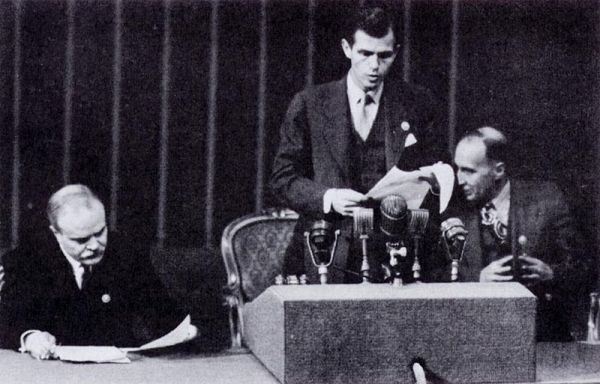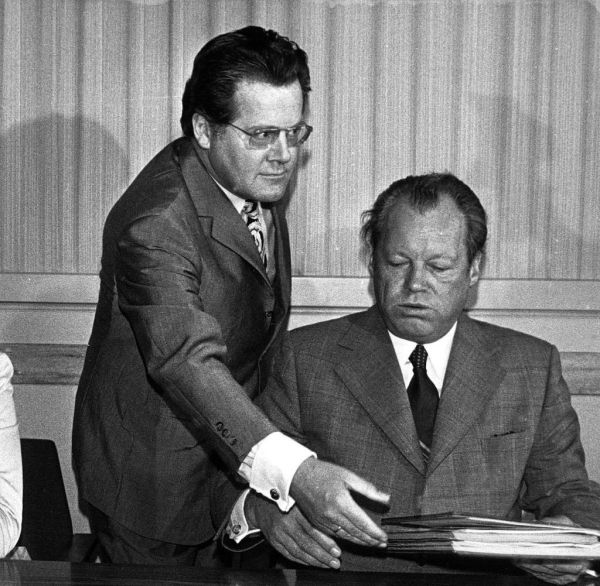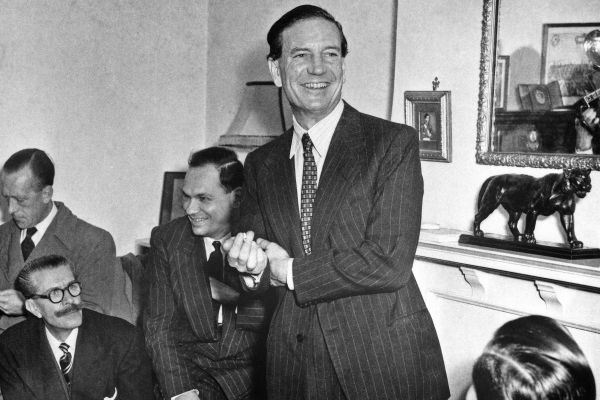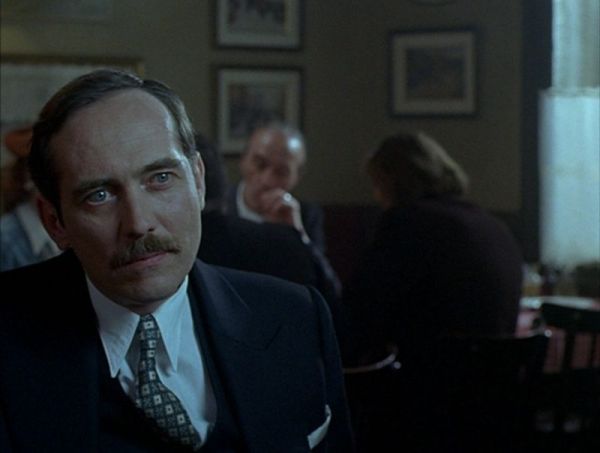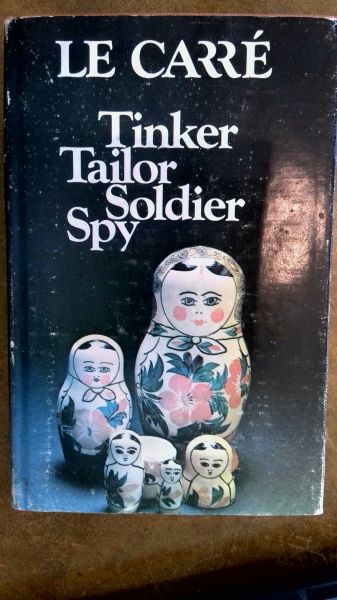Soviet Double Agents
The Western Achilles Heel
Western societies have a significant structural Achilles Heel—all of them: the U.S., Britain, France, Germany, and so on—inasmuch as we value individual initiative, and nurture points-of-view based on the individual conscience, rather than make the government dictate the terms of life to us collectively. Felix Adler, to use an example, founded the Society of Ethical Culture, to foster the idea that the orientation of the individual's heart mattered more to America that "the trappings of ritual or creed." (from Wikipedia). The government's dictating moral tenets to its citizens does not happen as often in a society like ours. This hands-off posture allows people with outlier initiative to build their own empires.
Occasionally, individuals use their outlier initiative to plot against the nation, to overturn it, and restructure it to suit their own views, Through charm and deception, they persuade others to follow them; but a freedom-loving society permits this downside, in order to profit from the upside, namely the ability of outliers to rise to the top of their professions and to improve the functions of the society with their creativity and innovative skill.
The Soviet Union discovered this Achilles Heel in the above-named countries and exploited it for all it was worth. The Soviets recruited double-agents among the resentful youth of the privileged class, and among intellectuals who should have known better, and led them into activities that nearly ended the culture of individual-freedom. I doubt if most of the agents understood the Soviet system well enough to explain why they did it. If someone had coaxed them to talk about their beliefs. They would respond to questions, as if from a catechism. Their personal views are a package deal, and they don't like specifics.
If an interrogator can get past the catechetical answers, maybe the double-agent will admit that he envies, even hates, Western success-stories. Maybe he feels passed over by the marketplace, by the veneration of rugged individuals. Their arrogance and egotism fosters an us-against-them mentality that negatively motivates a lot of people. Many people nurture those feelings, but they do not stand out to law enforcement until they break the law. We wish we could remove the rotten apples from the cart before they do any damage.
Here of a few of my favorite outlier rotten-apples:
Alger Hiss: BA, Johns Hopkins (Phi Beta Kappa); J.D, Harvard Law School (where he clerked for Justice Oliver Wendell Holmes); Assistant Secretrary of State to Francis Sayre in the International Trade Agreements section; in 1945 accompanied Secretary of State Edward Stettinius to the Yalta Conference; served as the UN's first Secretary General in April 1945. I have already published a post about the Alger Hiss Case, dated 12 August 2020.
Lee Pressman, Alger Hiss's law school classmate, remembered him "for the kind of distinction that had to be seen to be believed. If he were standing at the bar with the British Ambassador, and you were told to give a package to the Ambasssador's valet, you would give it to the Ambassador before you gave it to Alger."
Günter Guillaume: With his wife Christel Boom, Guillaume "fled" East Germany in 1956; but his "escape" to the West took place with the consent and support of the East German Stasi, the nation's secret service agency. The next year, Guillaume started work for the German Socialist Party, the SPD. Like Alger Hiss, Guillaume did excellent work. He worked long hours and never complained. He displayed considerable organizational talent, again like Hiss. He directed the electoral campaign of an important SPD candidate. From there, he became secretary to the German Chancellor Willy Brandt, starting 1972. He was Brandt's shadow and accompanied him wherever he went. No other East German agent succeeded as well as Guillaume.
Kim Philby: Philby confessed to spying for the Soviets in 1963: Peter Wright, a former counter-espionage offficer and the author of Spycatcher, remembers the day:
Suddenly there was very little fun in the game anymore; a Rubicon had been crossed. . . . To find
a man like Philby, a man you might like, or drink with, or admire, had betrayed everything. . . .
Youth and innocence passed away, and the dark ages began.
Verne Newton, writing in his 1989 book The Cambridge Spies, titled his chapter about Philby "The Drug of Deceit," and said that betrayal of the people around him—friends, wives, and associates—turned into something like an addiction for Philby.
John le Carré referenced Kim Philby in an interview and expressed the incredulity of others, "How could a chap like this be a chap like that?" Le Carré created a character based on Philby for his novel Tinker, Tailor, Soldier, Spy. After the traitor's unmasking, the spy-hunter George Smiley tried to understand why the traitor chose to betray his own country; but he ran into a few problems. None of his explanations satisfied him. Was the traitor an ideological purist? A snob of sorts, who needed the reassurance of Moscow as his "natural Mecca?" Smiley tried again: the traitor "needed the symmetry of an historical and economic solution." But this explanation also fails. Smiley eventually concludes that philosophy played little if any role in the traitor's actions. "It hardly mattered if the doctrine wore thin. . . . Treason is very much a matter of habit."
Nikolai Skoblin: Skoblin, adviser to White Russian General Evgeny Miller, betrayed Miller to the Soviet Secret Police, then died himself under suspicious circumstances, suggesting that the Secret Police silenced Skoblin to prevent him from betraying them. The movie Triple Agent, directed by the 84-year-old French director Eric Rohmer—nearly his last film--deals with the Miller kidnapping.
The main character in Triple Agent, Fyodor, a "White" Russian," (supporters of the Tsarist monarchy) works for the leader of the "White" veterans who fled to Paris after the "Reds" (Communists) defeated them on the battlefield. The Whites fled with little more than the clothes on their backs. France took in thousands of Russian refugees and offered them citizenship.
Photo from Triple Agent courtesy of film critic Glenn Kenny
Among Fyodor's White-Russian friends, a woman named Maguy hates Soviet artists. She spits out "Artistes!" contemptuously, pronouncing it "ar-teestez!". Maguy makes a rhyme out of the various avant-guard schools: "Cubeestes!" and "Avant-Gardeestes!" lumping them all together as "Ultra-eestes!" They share a good laugh over it.
Maguy tells Fyodor's wife Arsinoé that even her neighbors may lay a trap for him. Arsinoé laughs it off, but Maguy insists, "Every Red in France has a file on Fyodor!" Arsinoé understands her husband better than Maguy and worries more that Fyodor may actually be a Soviet agent. How come he has such good insider's knowledge of events unfolding in France and Russia. It startles his friends. He replies with a knowing smile that he makes it his business to know things and refuses to reveal his sources.
Curious about the Communist couple upstairs, André and Janine, Fyodor and Arsinoé invite them to dinner. He grills them on how much they really understand about the Communist Party and the machinations of the Soviet Union. They fall back on textbook ideology that ignores world events. Can you imagine it? Pedestrian Communist Party members are no different from the true-believers who support any other political party. They haven't a clue about the amoral world of politics, even one that has Stalin as its head.
The name of the official Communist Party newspaper L'Humanité defines the members' stance—their support for humanity and social justice for the working-class. L'Humanité never bothers to inform its readers about Stalin's pathological striving for power and the purges he launches against real and imagined enemies.
Rohmer's Triple Agent lets us see how everyday pedestrians relate to historical events. Crises pass, sandwiched between visits to the doctor, conference with co-workers, or waiting in a car-repair shop. When Fyodor helps the Soviet secret-police agents kidnap his own commanding officer, his friends can hardly believe it. The agents take him back to Russia and execute him in the basement of their headquarters. How could Fyodor do this—one of his own guys?
But different people have asked Fyodor about his loyalties throughout the movie. Whose side is he really on? He has been seen entering Gestapo Headquarters in Berlin. He tells Arsinoé they need to move back to Russia. He can get better pay and, thanks to Stalin's purge, the Red Army has plenty of openings for experienced officers like himself. She questions him at length about his loyalty, and he treats her to his usual breezy ambiguity, leading her to believe he is not completely honest with her, or that he is just looking for the best deal—for himself and for her.
Then Fyodor confesses to Arsinoé his part in the kidnapping of the general. When she asks how he could do such a thing, he turns sheepish and says he really doesn't know. A car pulled up beside himself and the genreral on the street. Strangers climbed out of the car, pushed the general into it, and drove away. Fyodor implores Arsinoé to help him create an alibi. He has not only conspired in the kidnapping, he wants her to lie about it. This leaves her stifled and demoralized; but the general's staff officers arrive and interrogate Fyodor before the alibi can take shape; and they already know what happened. Their evidence implicates Fyodor's active involvement.
Fyodor ends up betraying everything he has professed up to now—his identity as a White Russian, his friendships and associations with other White Russians, and finally his wife. The other leaders of the White Russians come looking for Fyodor, and he escapes—simply walks into oblivion and is never seen again. Accounts of his death vary widely among Soviet witnesses who participated in the kidnapping and its aftermath.
Rohmer based Triple Agent upon a true story, the kidnapping-murder of the White Russian General Evgeny Miller in Paris. Rohmer also utilizes a fictionalized account of the kidnapping by a Russian writer Vladimir Nabokov, in his short story "The Assistant Producer." Nabokov, best known for his controversial novel Lolita, lived near General Miller in Paris and knew him.
My reader can get a straightforward factual account of General Miller's kidnapping from the book I Was Stalin's Agent, written by the Soviet defector Walter Krivitsky and published in 1939. He tells the true story, more or less as Triple Agent relates it, Miller had to meet two German officers, who were, in reality, Soviet secret agents. Krivitsky knew about it because the secret agents worked in his department.
More than simply relate the story of a kidnapping by foreign secret agents, though, Rohmer wants his viewers to internalize Fyodor's ambiguity, a subject that interested British writer John le Carré. Like Rohmer, le Carré offers no easy answers to the motive for treason. He writes in Tinker, Tailor, Soldier, Spy that his readers should think of the traitor as a Russian wooden doll. You open the doll and find another doll inside it with a different persona, perhaps telling a different set of falsehoods. You might term them ordinary human motives—not historically important ones. Since Karl Marx, liked to think in terms of history justifying Communism, he probably would not like ambiguity in people. Maybe that is why Soviet Socialism failed.

